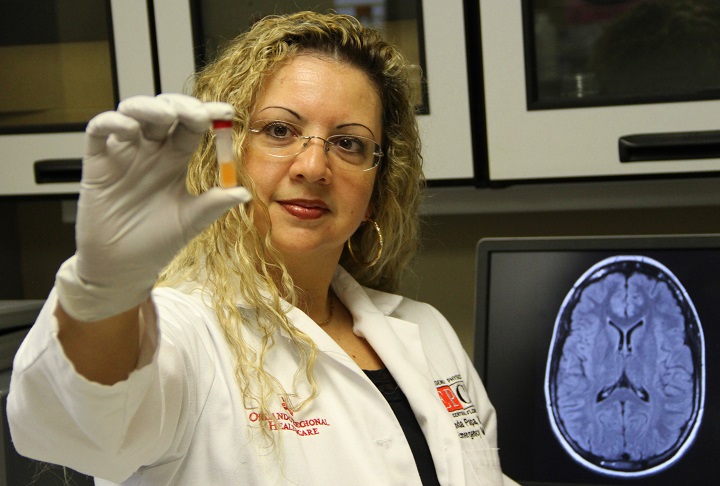Soccer goalie Kate Radcliff was diving for a ball when she collided with another player. At first, they didn’t think Kate needed medical attention.

“We actually didn’t get her checked out right away because she didn’t have the symptoms right at the beginning, but a couple of hours later she started vomiting and had a headache,” said her mother Misty Radcliff.
But a new blood test that has proven to be 94 per cent accurate could change the way concussions like hers are diagnosed, according to a new study. Experts say it’s even more interesting because the blood test can also detect the severity of the head injury.
“This could ultimately change the way we diagnose concussions, not only in children, but in anyone who sustains a head injury,” said Linda Papa, an emergency medicine physician at Orlando Health.
“We have so many diagnostic blood tests for different parts of the body, like the heart, liver and kidneys, but there’s never been a reliable blood test to identify trauma in the brain. We think this test could change that,” said Papa.
READ MORE: Canadian docs release 1st national guidelines on concussion in kids
For the study, Dr. Papa and her research team at Orlando Health developed a simple blood test that can detect concussions. They took blood from 152 children who recently suffered a brain injury, and also gave each child a CT scan. The scans detected small lesions on the brain, and so did the blood test. The biomarkers in the blood identified brain injuries with 94 per cent accuracy, and even gave insight to doctors about how severe the injury was.
- Landmark smoking ban that would phase out sales passes U.K. parliament
- Budget 2024: Liberals look to offset drug plan cost with higher smoking, vaping taxes
- Health task force blasted over ‘dangerous guidance’ for cancer screenings
- Preventing future pandemics goal of new U.S. partnership with 50 countries
“We’re looking at different types of lesions we find on CT scan, those that are more severe than less severe, and the biomarker actually is elevated in the more severe injuries.”
In Canada and the United States more than 300,000 young people suffer a concussion every year. It is often considered to be the invisible injury, according to Parachute, a Canadian injury prevention organization, concussions are considered the “invisible” injury, since they do not show up on medical imaging tests such as x-rays or CT scans. But they are also considered “invisible” because their effects are often misunderstood.
Even though there is more awareness around head injuries, symptoms of a concussion in kids can be subtle – which is concerning – as the longer it is left untreated the damage can be worsened.
Papa hopes this test can be used in sports arenas, on fields of play and in the community, adding another benefit is that it doesn’t expose patients to radiation like a CT scan does. She hopes the test will be available within five years.
“The idea is to try to get a point-of-care test that could be used on the field, to help the coaches, and the trainers and the athletic directors, make a decision about whether the child should go back to play.”
What is a concussion? Dr. Michael Evans from St. Michael’s Hospital explains in this video what concussions are and what to do.





Comments